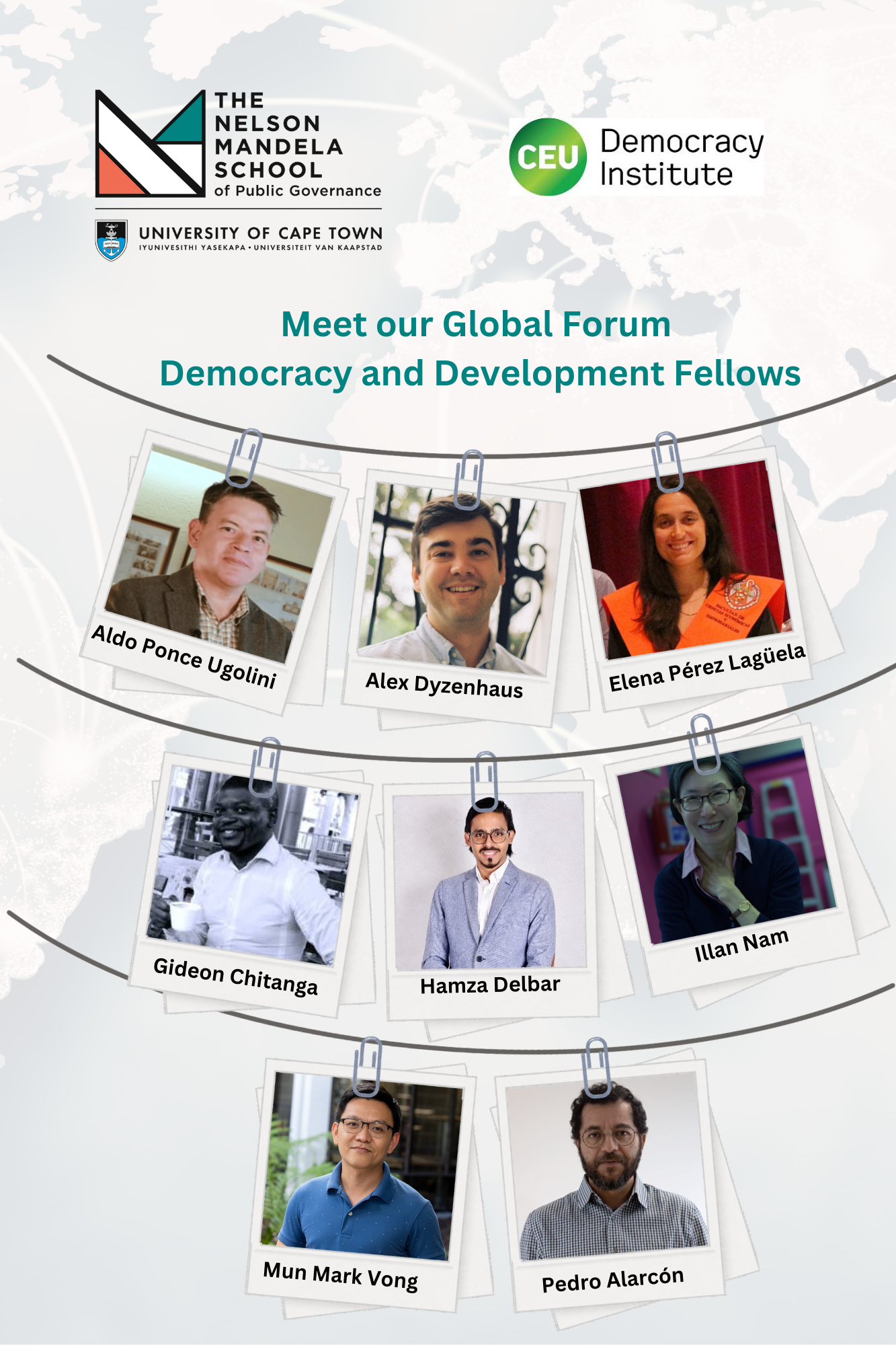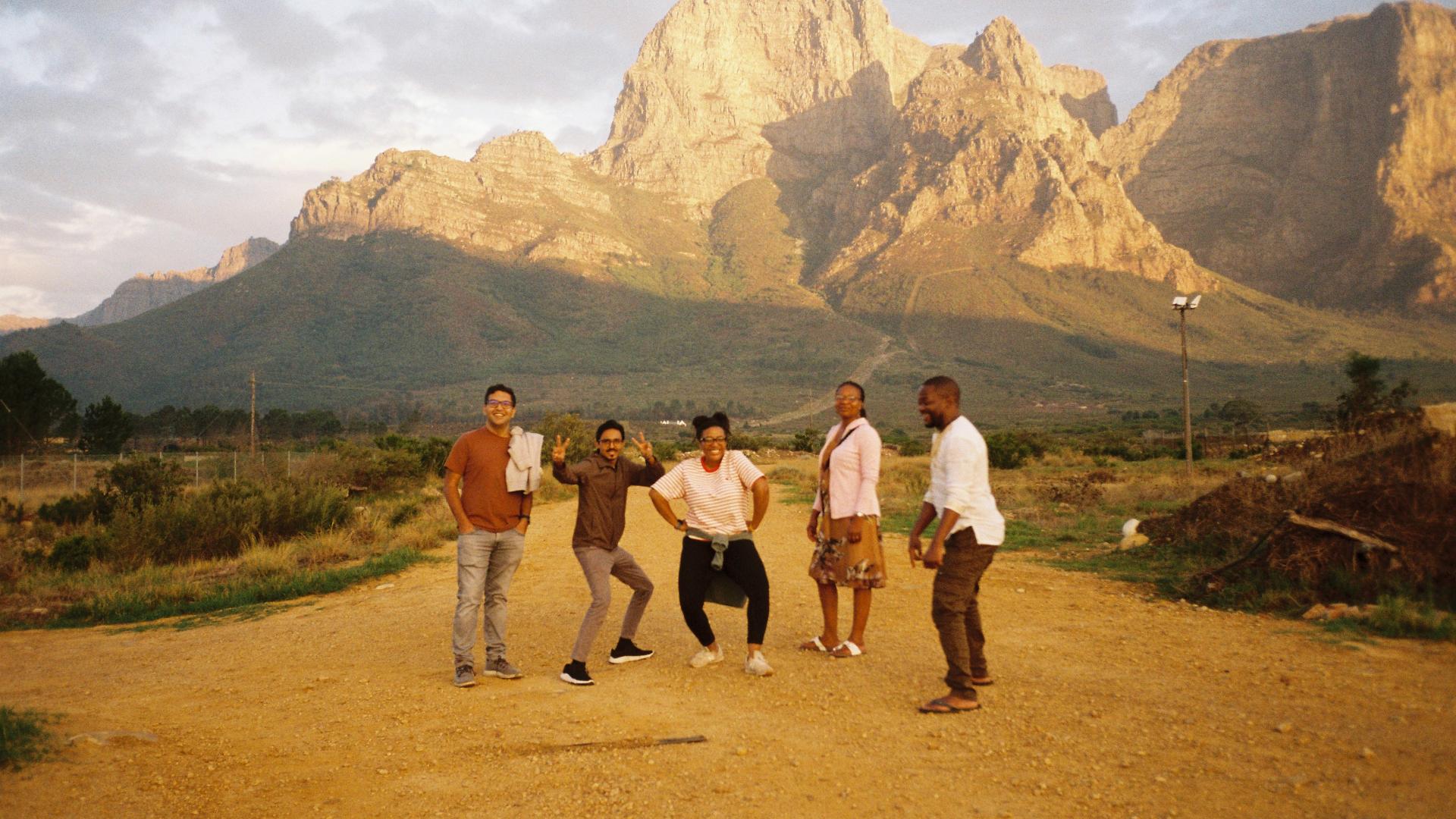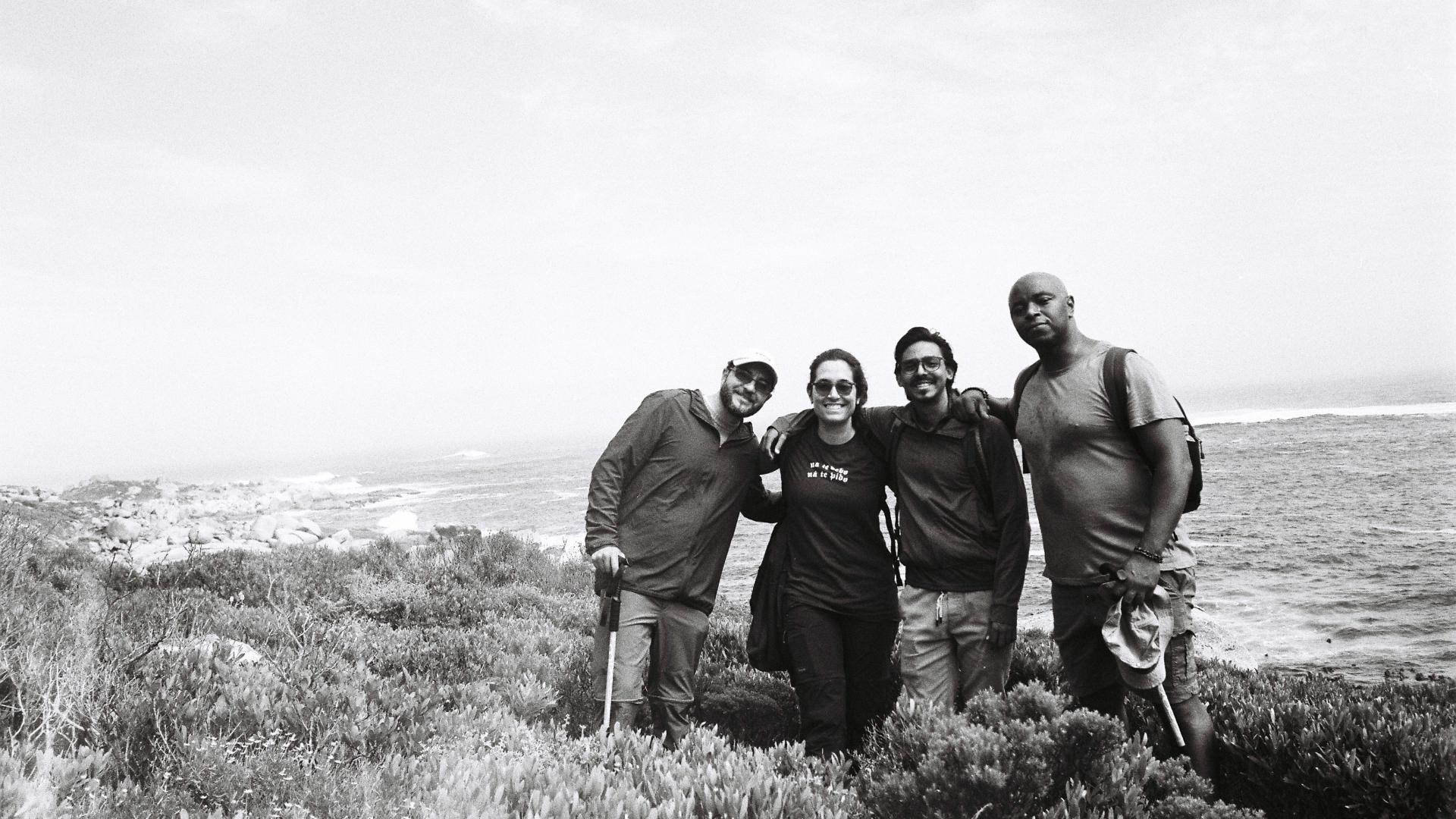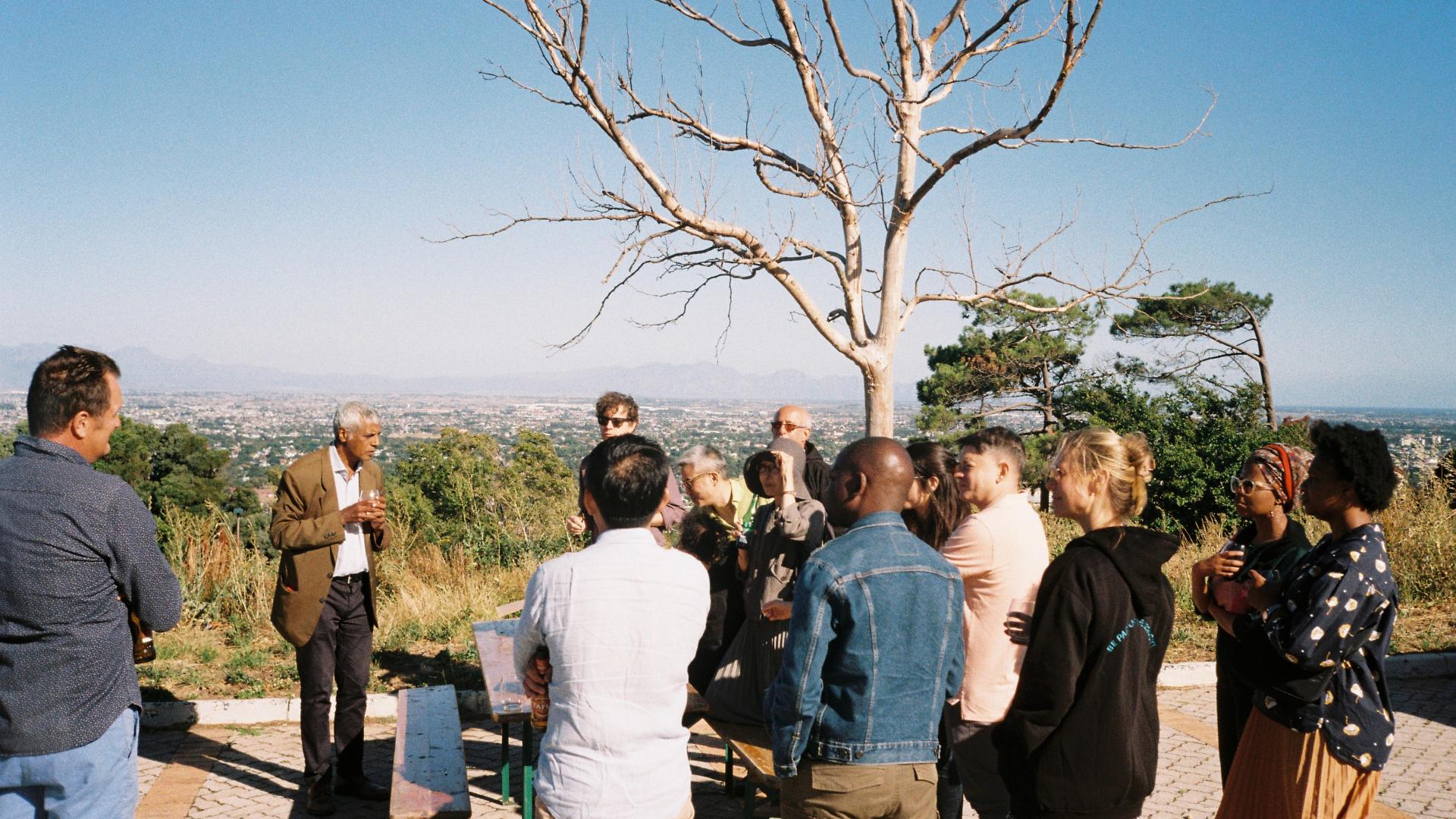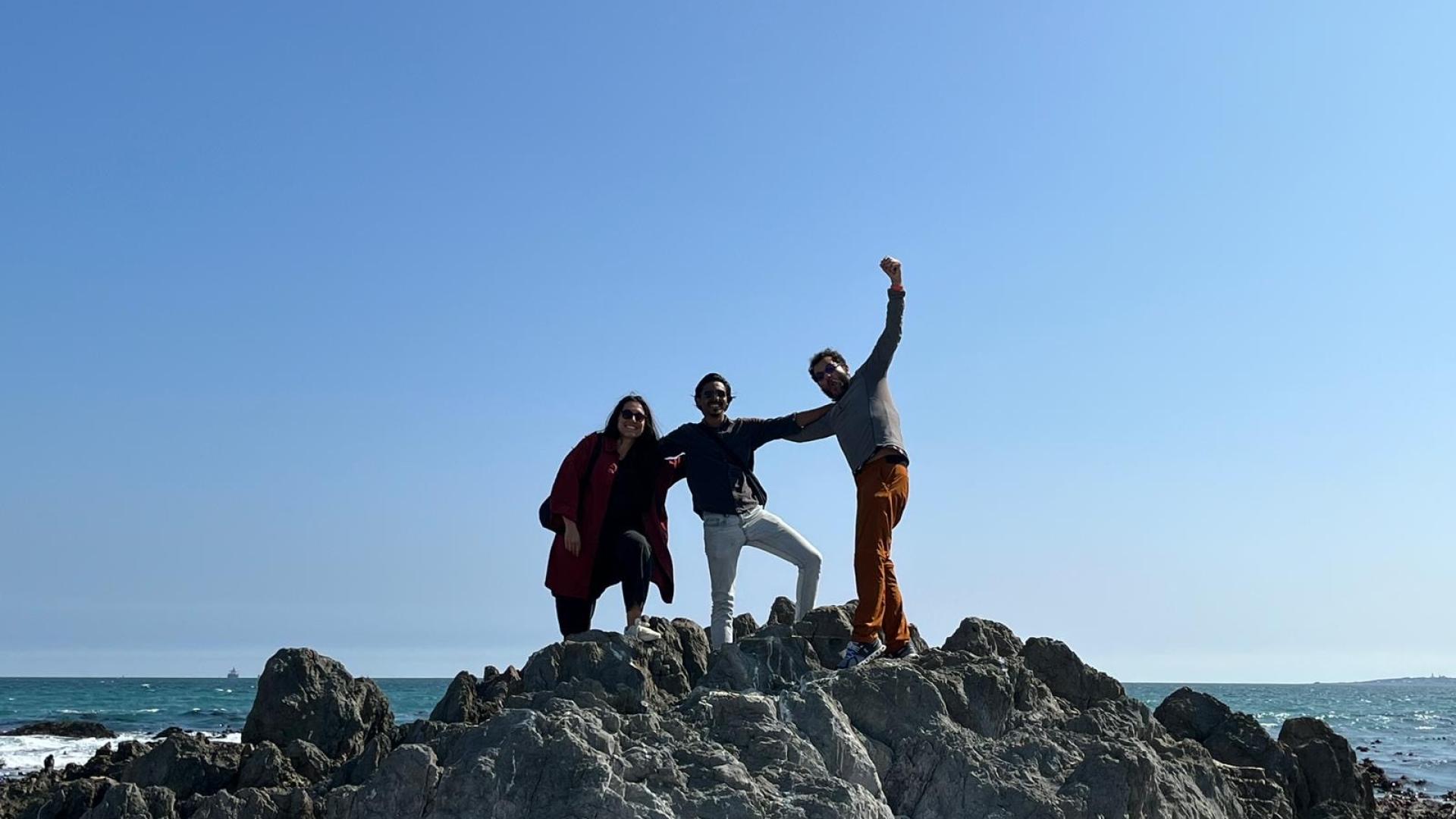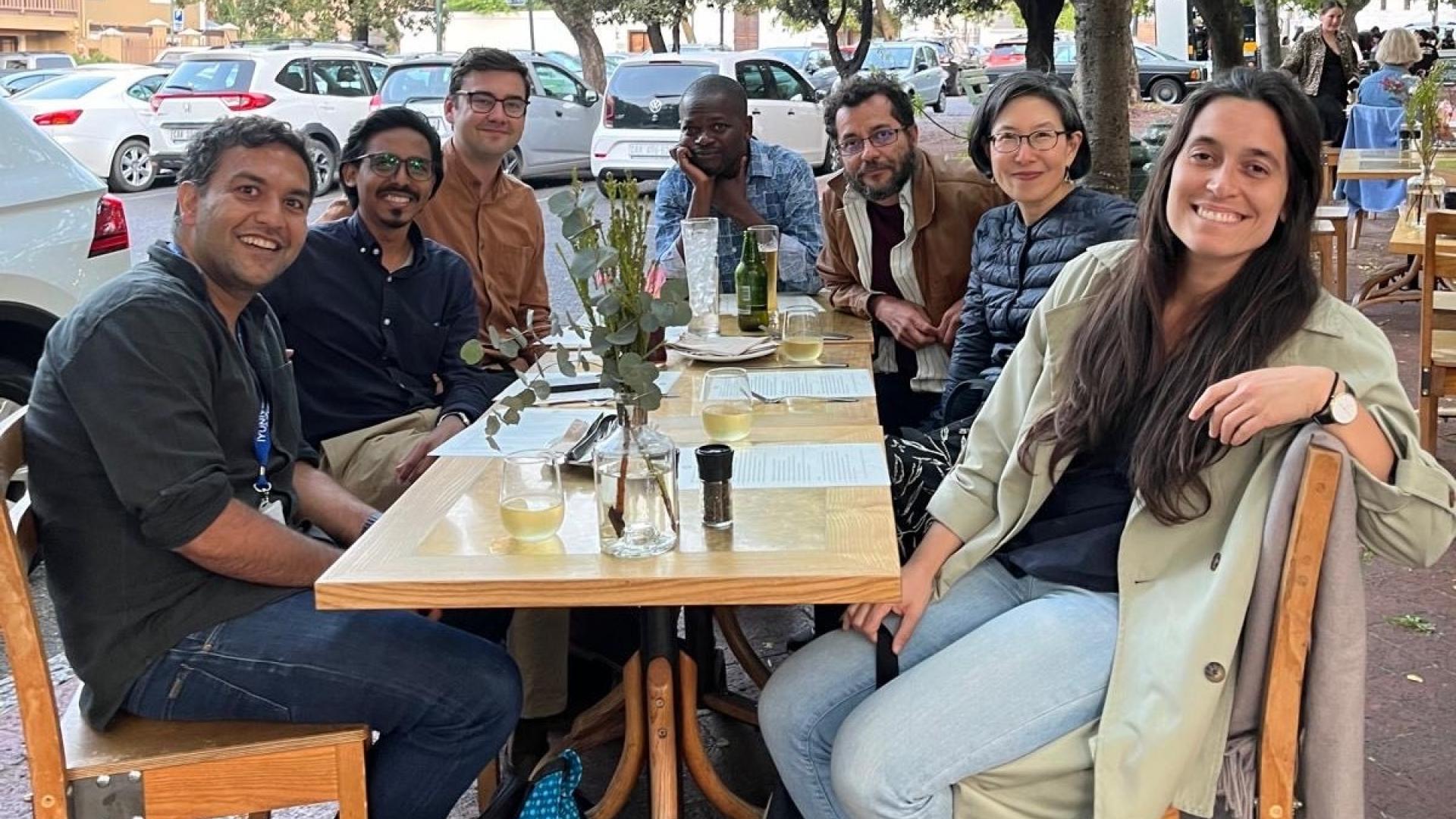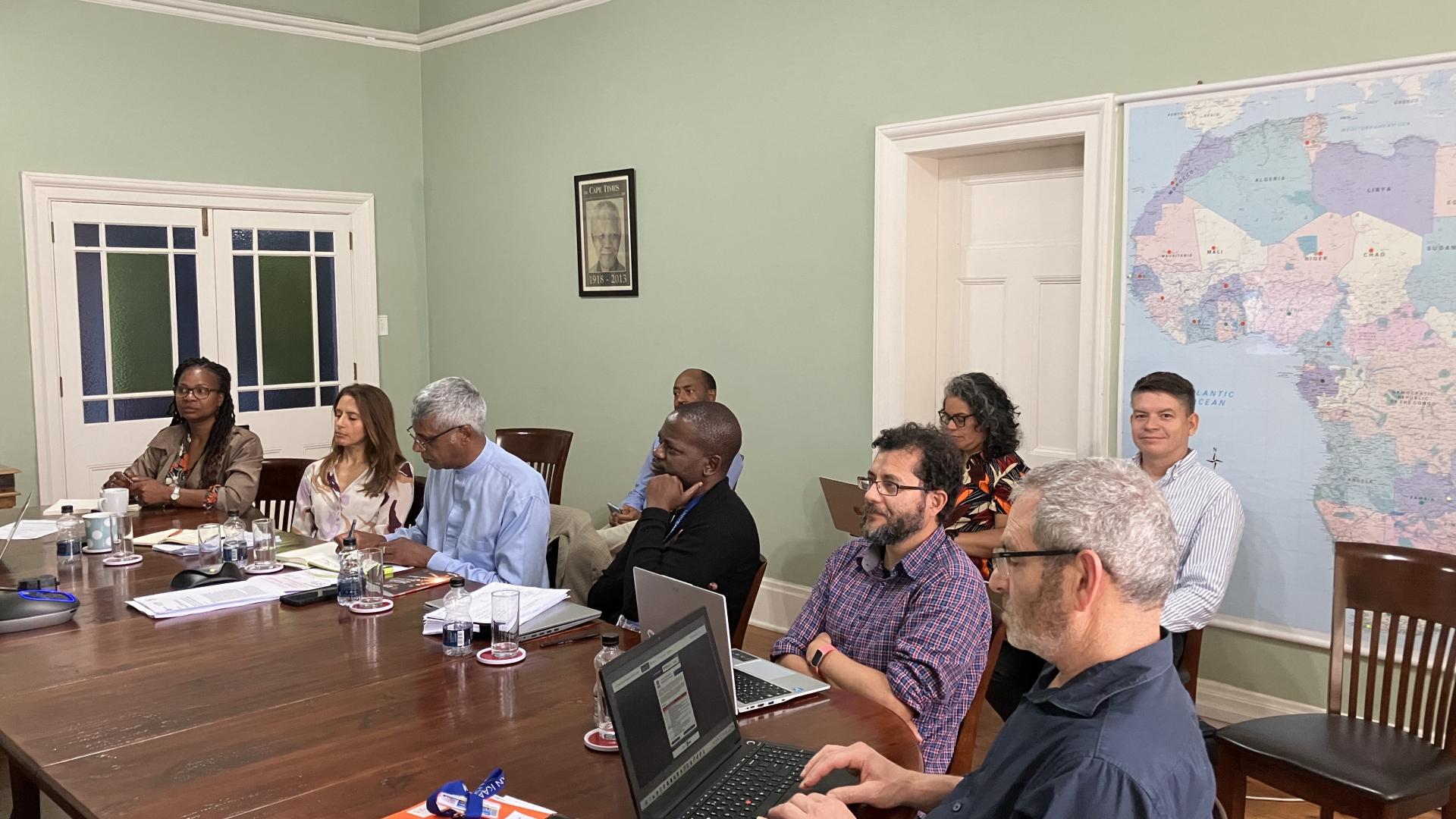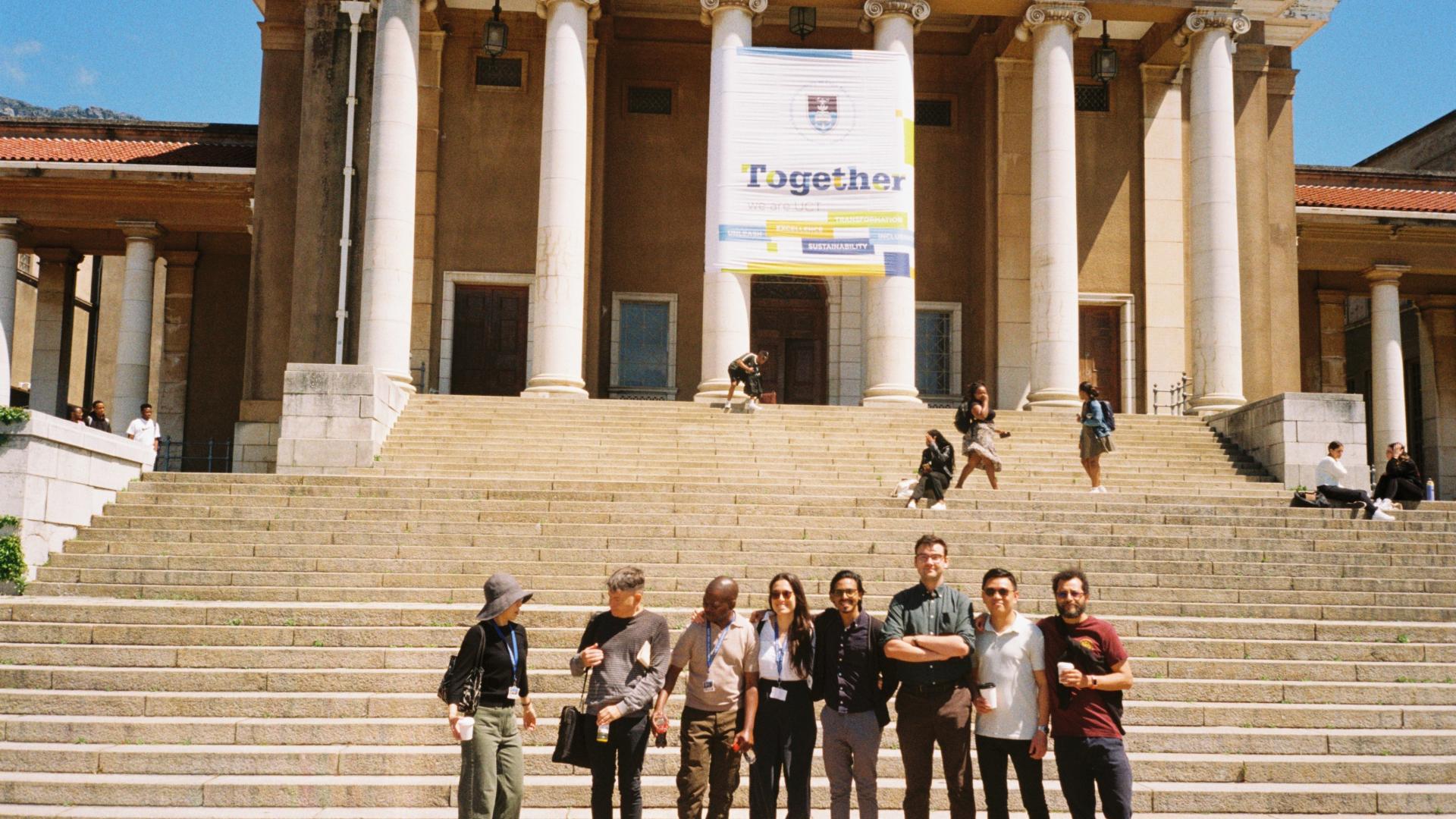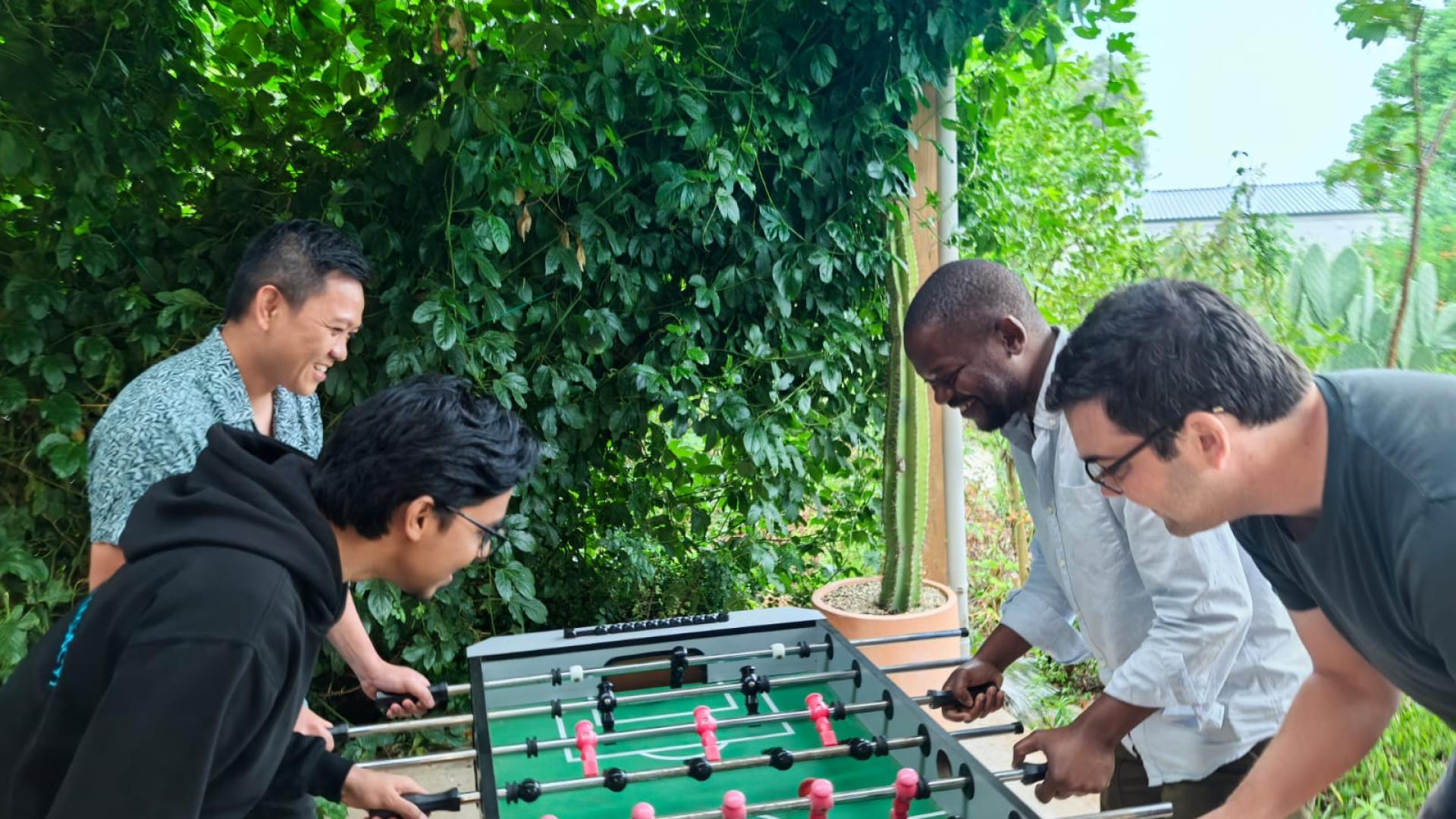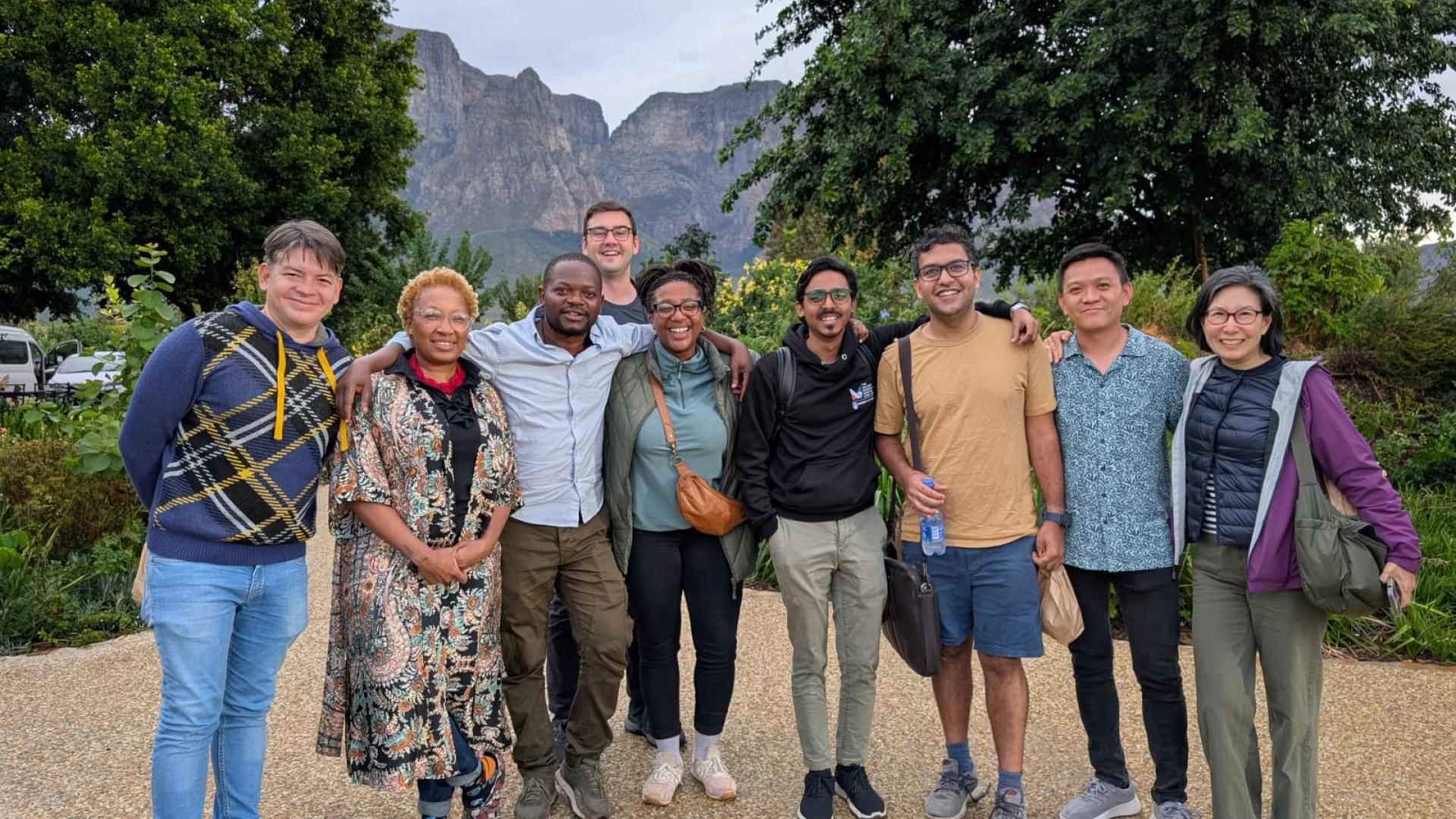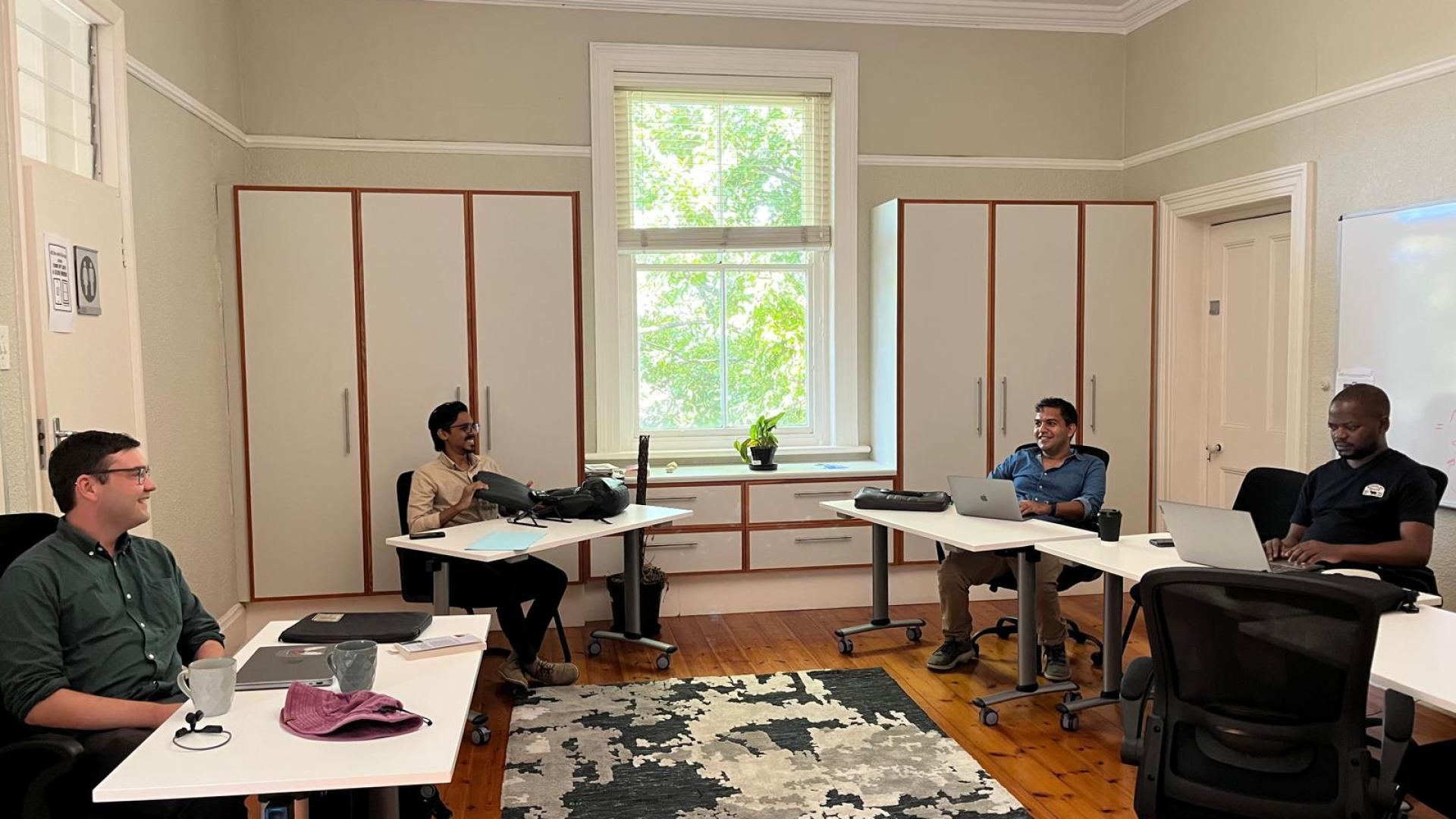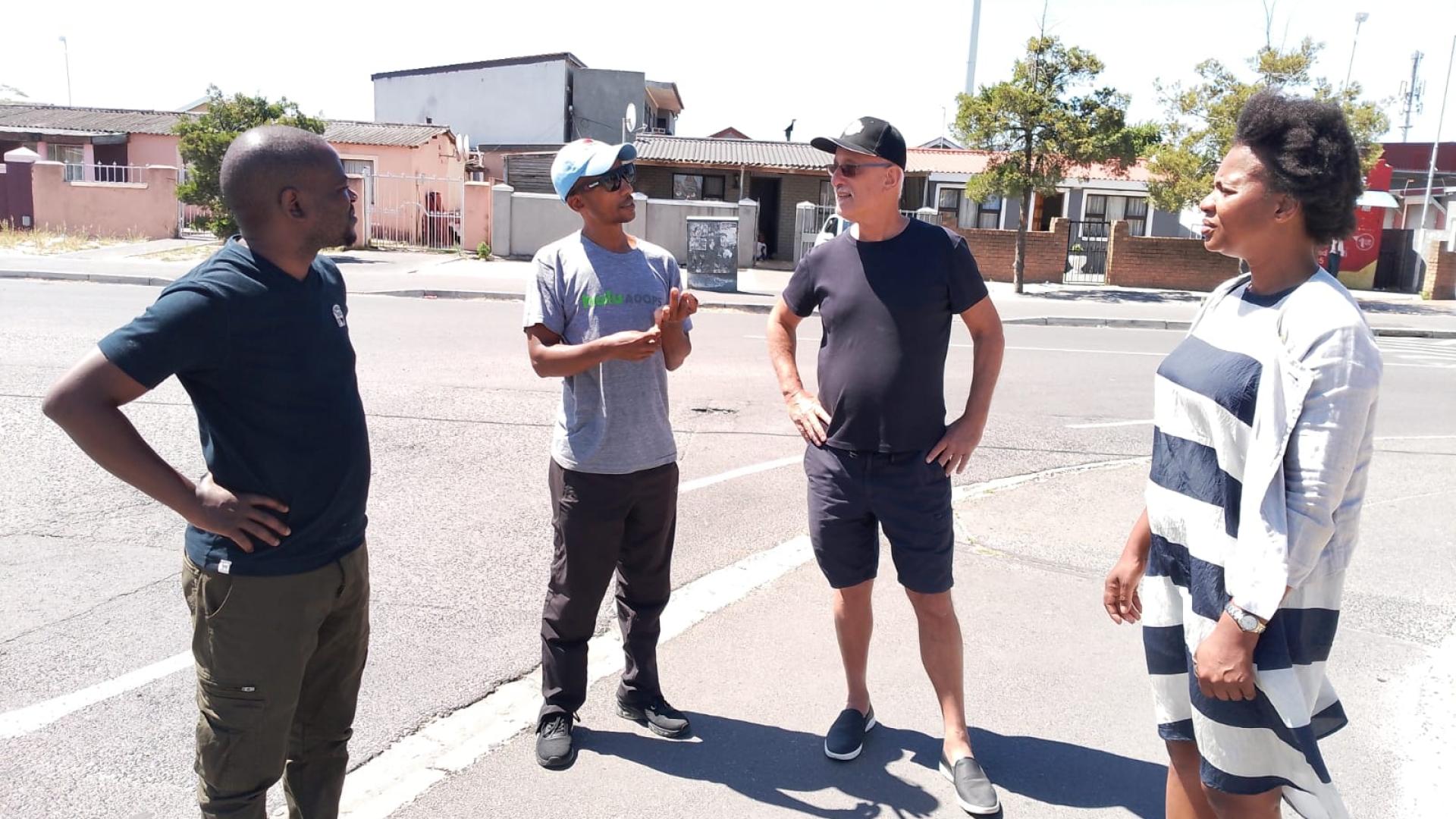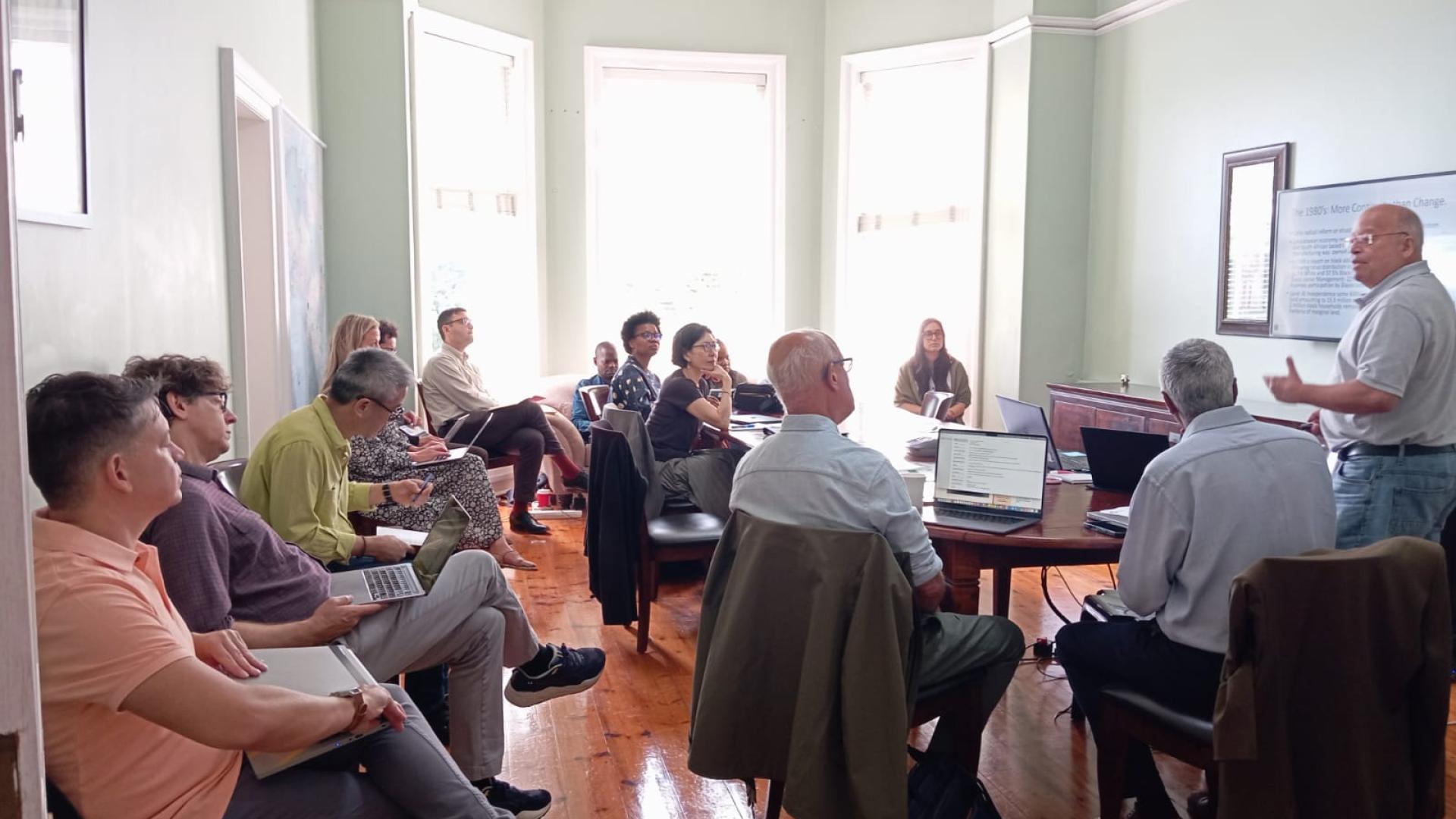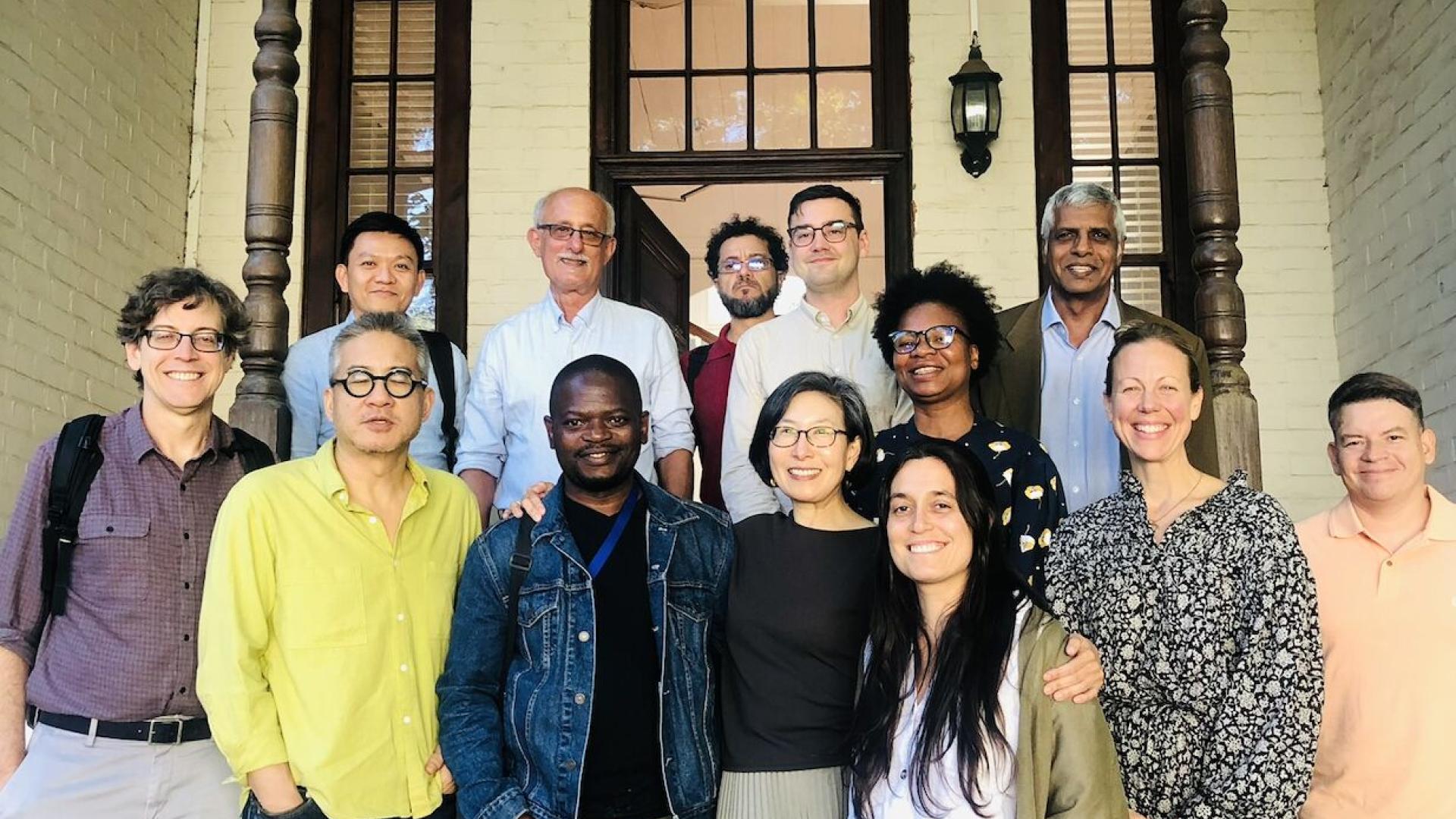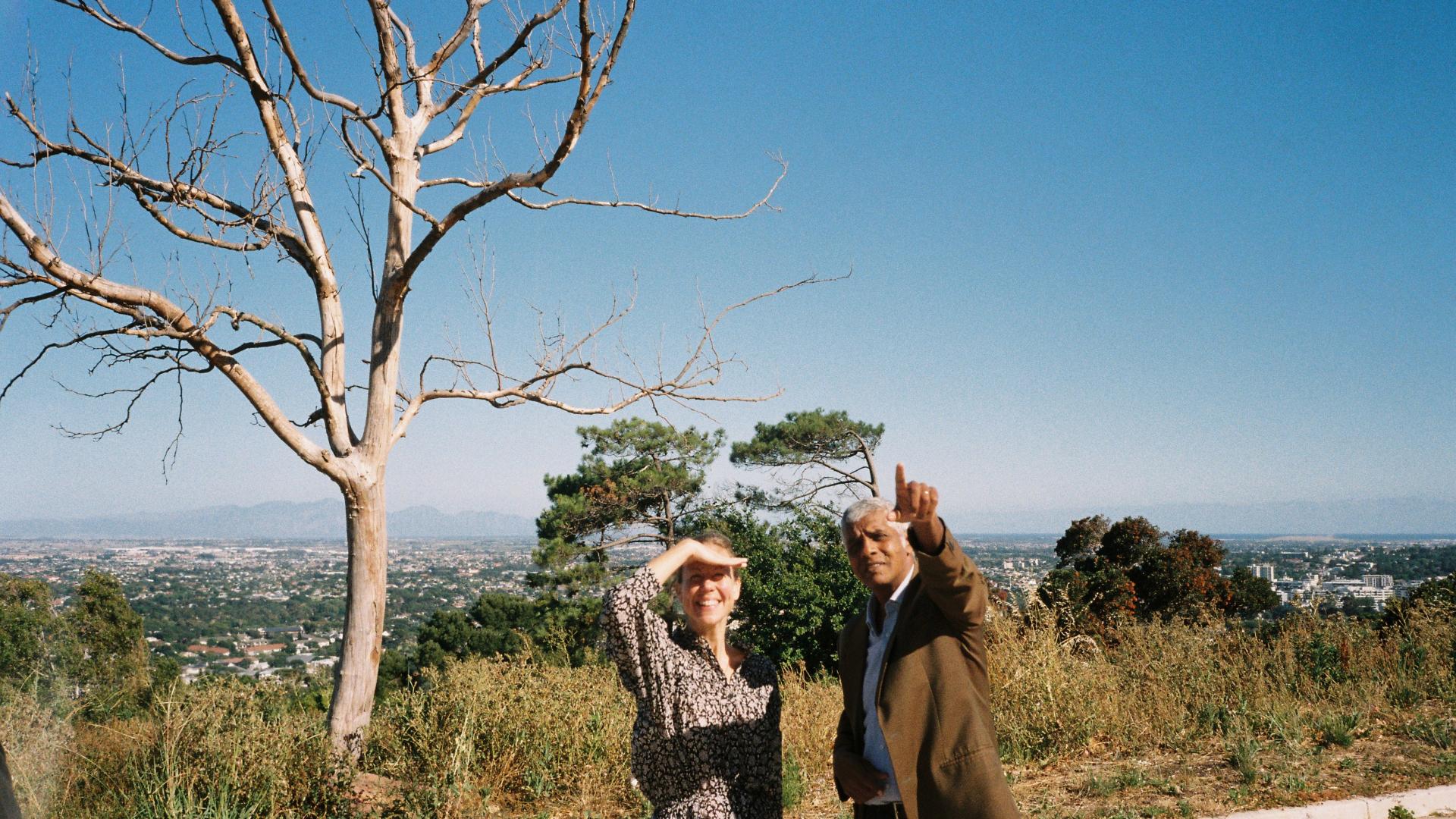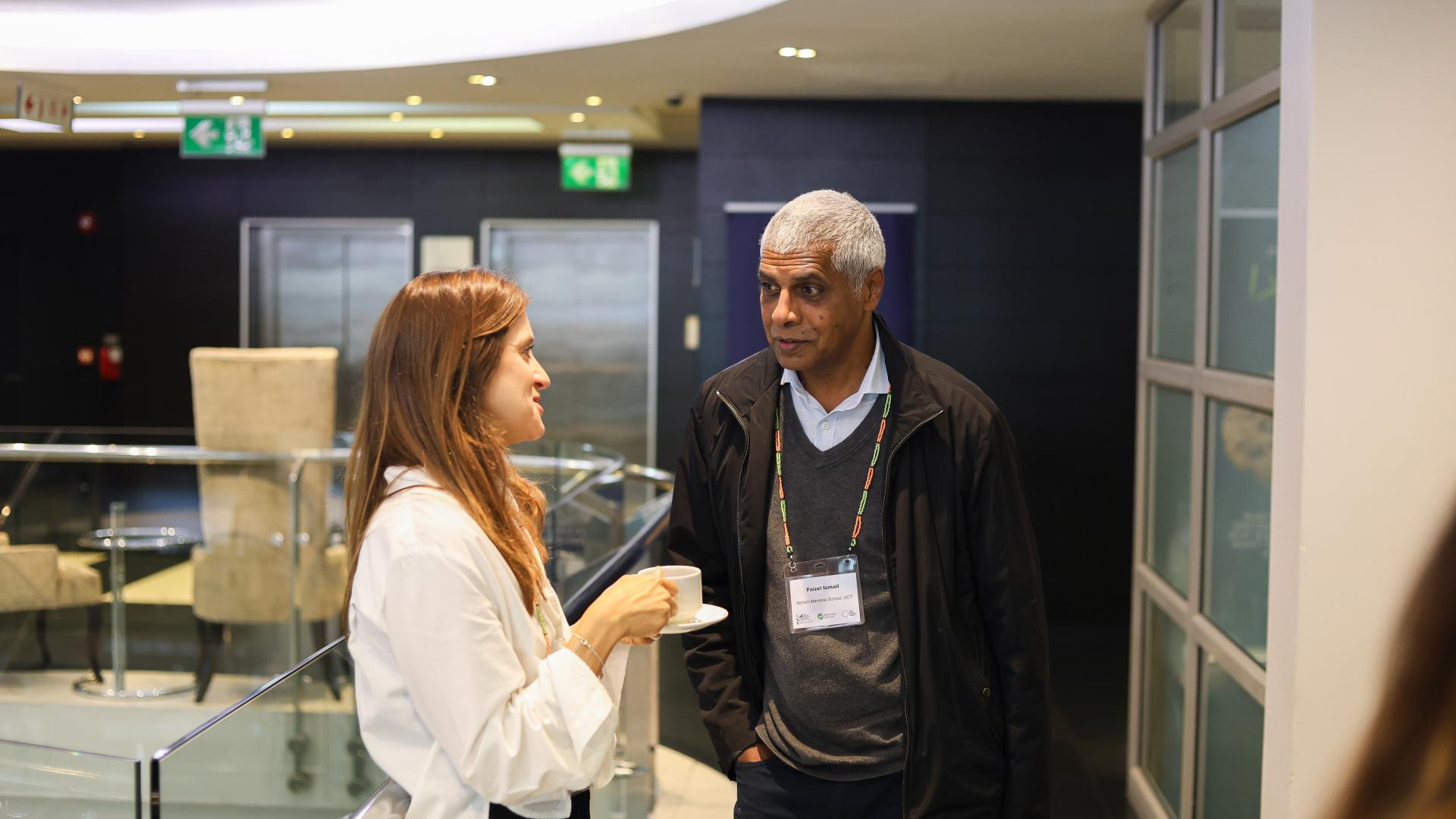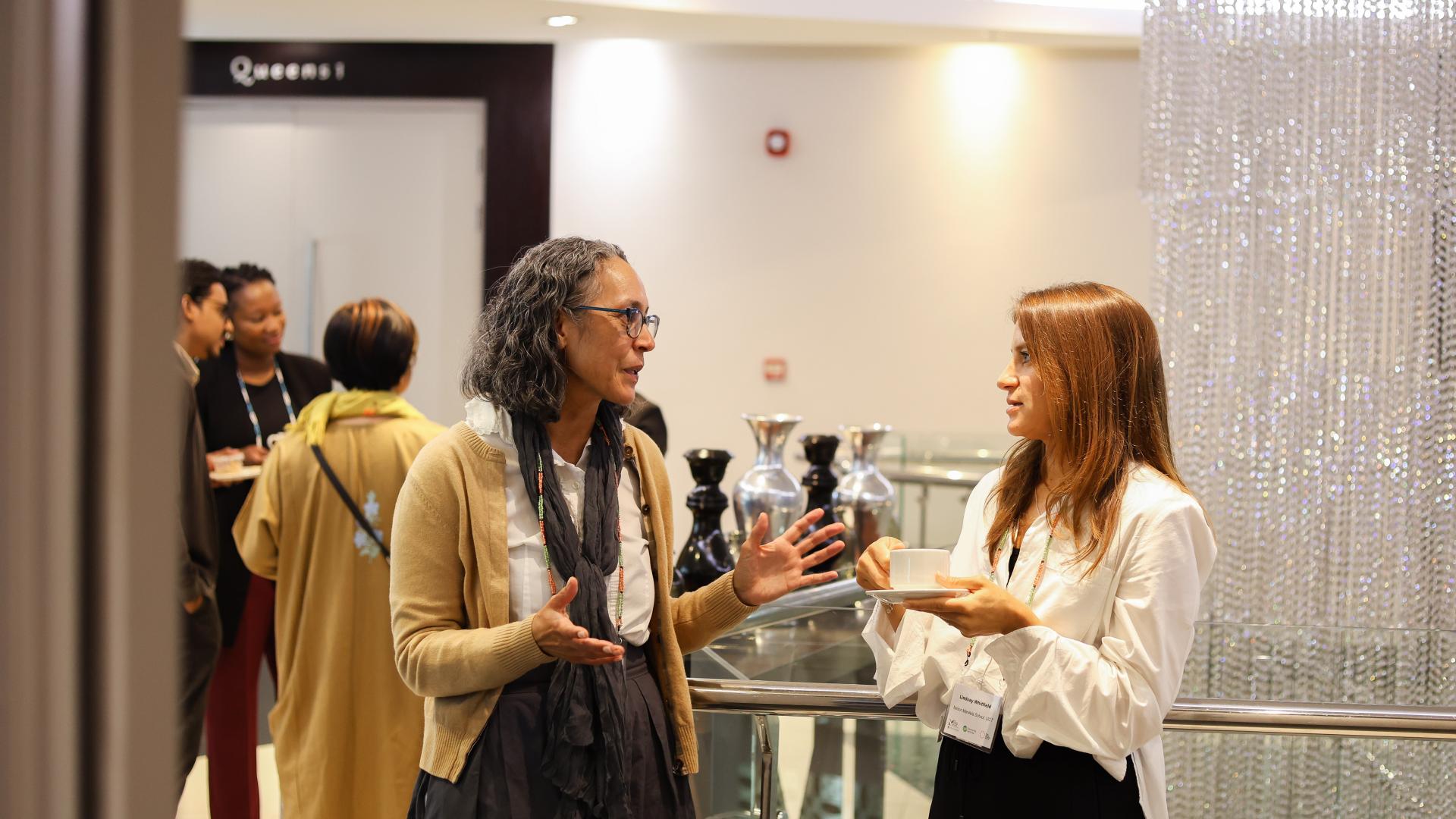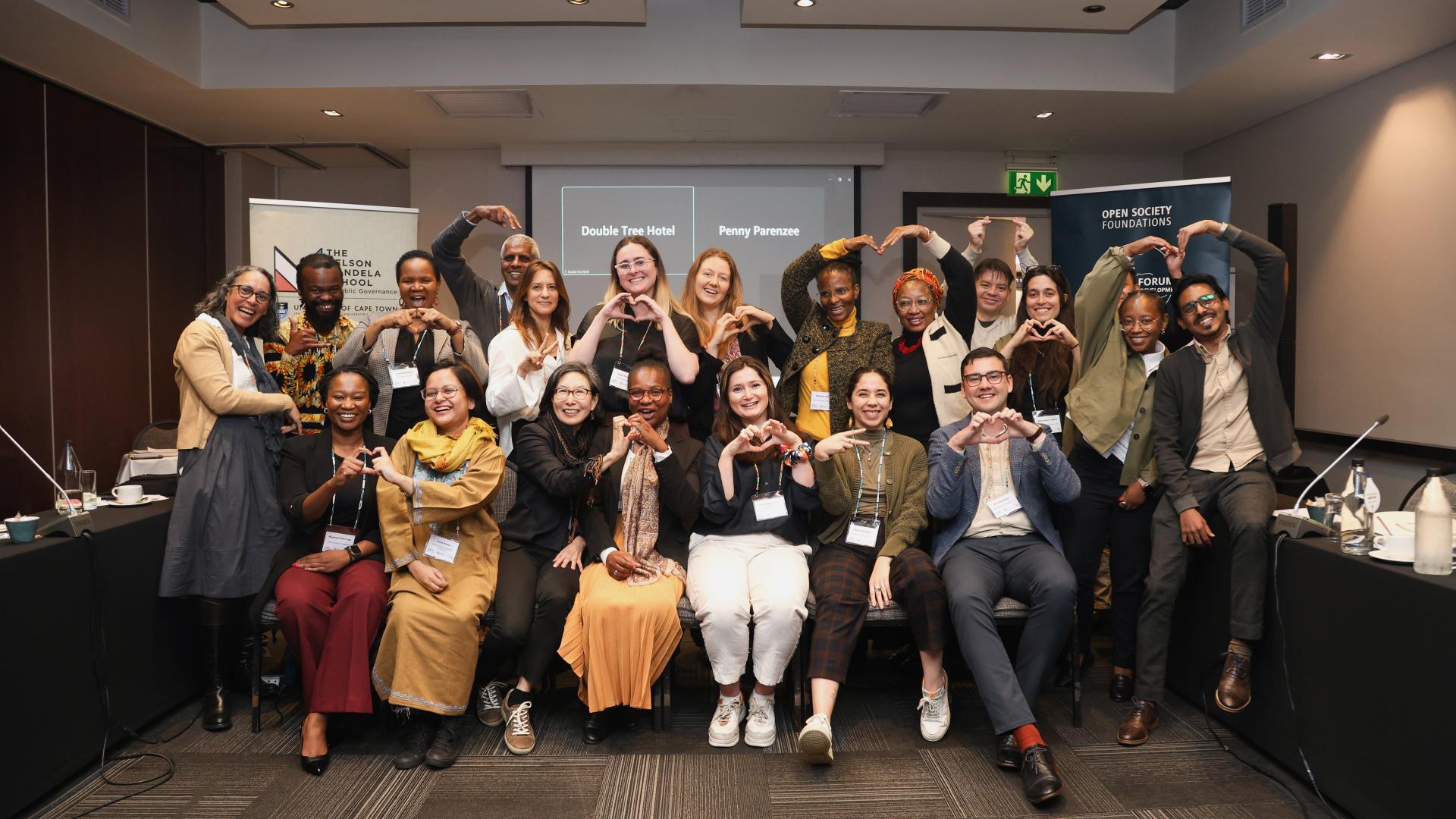The Nelson Mandela School hosts interdisciplinary and cross-regional Fellows
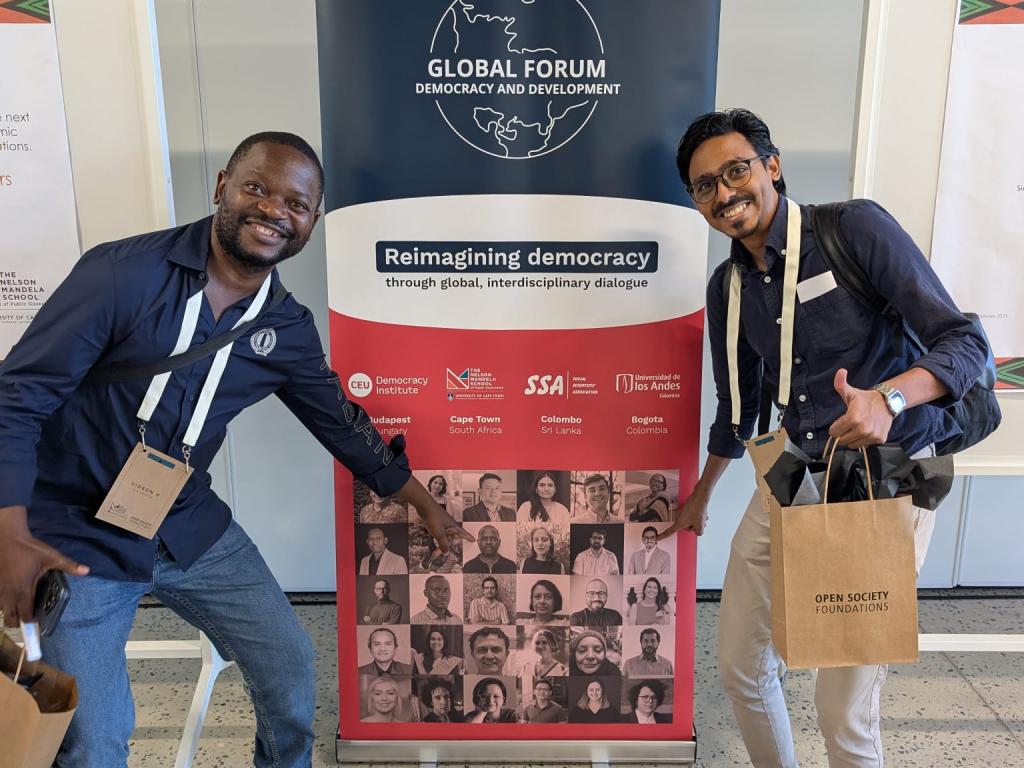
The University of Cape Town’s Nelson Mandela School of Public Governance welcomed research fellows and faculty members for a residential fellowship programme. This fellowship is part of the Open Society University Network Forum on Democracy and Development project. Its goal is to reimagine democracy in political, social, and economic contexts, creating a unique platform for interdisciplinary and cross-regional exchanges of ideas between scholars from the Global South and the Global North. The fellowship started on 1 October 2024 and ends on 30 May 2025.
As the fellowship concludes, the School hosted a conference titled "Building Democratic Resilience and Economic Transformation in Africa," (12 -14 May 2025). The conference explored the challenges and opportunities related to democratic governance and economic development in Africa, particularly in light of the increasing dysfunction in global governance and the crisis of liberal internationalism. The first day of the conference highlighted the work of the fellows, focusing on land reform and agricultural development. The following days featured prominent thinkers engaging in discussions and analyses concerning global governance and Africa's development.
The eight fellows at the Nelson Mandela School reflect on their experiences during the residential fellowship at the University of Cape Town. Every reflection emphasises a significant academic journey, promoting dynamic experiences for personal and professional growth.
Reflections from the Fellows:
Highlights from the fellowship experience
This fellowship has provided an excellent experience for me. It has been an invaluable opportunity to advance my research during the period of the fellowship and, more importantly, I could do so while meeting (and working with) a wonderful and excellent cohort of colleagues from different parts of the planet. With them I have shared my research and discussed different perspectives on institutional and economic development.
General challenges experienced during the fellowship
In general, the academic and administrative aspects of the fellowship have run smoothly; though I would kindly suggest following up the bureaucratic procedures in some areas of UCT. Above all, I would like to commend the administrative team of Nelson Mandela School of Public Governance. In particular, because of their full efficiency, I would like to single out Mrs Wendy Hendricks, Mrs Maria Beaunoir, and Mr Siviwe Madlebe. I am very grateful to them for all their help!
Key takeaways from the fellowship - reflect on the lessons learnt and how they have influenced your professional development
During my period in South Africa, I learnt a lot about several topics related to political and economic development. The roles played by the convenors and the scholars of the Nelson Mandela School of Public Governance were paramount to boosting my understanding and knowledge of these development topics.
Future plans related to the fellowship experience
I will bring the research I initiated during this period to completion. I am now even more interested in explaining governments’ decisions about investment on research and development from an institutional perspective. Also, I would like to remain in close academic contact with the Nelson Mandela School. I hope we keep our ties and collaboration in the future.
Did the fellowship meet your expectations?
The fellowship certainly met my expectations. I hope the Nelson Mandela School of Public Governance and the Central European University (CEU) continue offering these opportunities to other researchers in the future.
Highlights from the fellowship experience
I've really enjoyed the academic community that we've built as researchers, both within the fellows and with the broader research community at the Nelson Mandela School. It's been a great place to rethink my work on land reform in South Africa, both drawing from the comparative experience of the fellows and the more South African focused work of the researchers at the Nelson Mandela School and wider UCT. It was really touching when half the School showed up for my talk at SALDRU! Another highlight was giving a talk at Wits. While I love UCT and the Nelson Mandela School, it felt special to present my research in a building where four generations of my family have studied and taught over the last century.
General challenges experienced during the fellowship
I think the main challenge of these fellowships is moving to a new place. But luckily for me that was cushioned by the fact that I have friends and family here. One challenge that you see in most fellowships is that things kind of start to drift at the end. People leave - either permanently or for a month at a time - and our end of the office gets a bit quieter. It's been odd to see the drift if you're away for more than a month. There's always a sad sense of things coming to a close as fellowships tail off a bit. But they can't last forever!
Key takeaways from the fellowship - reflect on the lessons learnt and how they have influenced your professional development
I think the main takeaway for me is how generative it can be to have like-minded and diverse perspectives come together. The interdisciplinary and cross-regional approach and the embedded nature of the fellowship were very helpful and a welcome break from the often-isolating fellowships that exist in academia.
Future plans related to the fellowship experience
It's as yet undecided, but there are some job applications in the works and a few part-time research positions when I get back to Toronto.
Did the fellowship meet your expectations?
The fellowship exceeded my expectations! I've had a great time and I've loved the sports games, hikes, meals and laughter that have come along with the work.
Highlights from the fellowship experience
I reckon the biggest highlight has to be the fellowship itself. It has been an amazing, extremely enriching and, at the same time, humbling experience. Perhaps one of the most extraordinary moments in my personal life, and one of the most memorable times in my professional life. The first month, when we finally got to meet everyone in person and we started to get to know each other was definitely the most special moment. On a professional level, both the guidance and mentorship that we got from our convenors have been outstanding. Their careers are very inspiring, and so are the careers of the senior fellows, from who I've learnt a lot too!
General challenges experienced during the fellowship
Living abroad, especially when you move to the other side of the world, is exciting but challenging at the same time. I didn't experience any cultural shocks, but I did had some administrative and logistical issues at first that made the 'landing' a bit more difficult than I would've expected.
Key takeaways from the fellowship - reflect on the lessons learnt and how they have influenced your professional development
The multidisciplinary, multicultural and diverse environment is definitely one of the key takeaways from the fellowship. These intersections made the debates more complex but, at the same time, more productive. Moreover, having had the privilege to live in South Africa and to get to know the reality of the country and its people first hand has been very gratifying from a personal and a professional perspective.
Future plans related to the fellowship experience
As part of our future plans to continue engaging with the fellows and convenors, we have some projects in mind: one would be related to the funding we received to kickstart the 'ECO-DEM' initiative (Ecological Commons and Democratic Futures). Ideally, we would like to continue working as a network of researchers with similar interests and to enhance our ways of collaborating by setting new dates for workshops and conferences. Besides, with the rest of the Cape Town fellows we are discussing the possibility of producing a collaborative publication (be it an edited volume or a special issue in a specialised journal) and, budget-permitting, to celebrate yearly conferences where we could present our most recent progress and areas of research.
Did the fellowship meet your expectations?
The fellowship not only met my expectations, it did exceed them! And a lot of this has to do with the role that the Nelson Mandela School of Public Governance played in hosting us. We have been supported, looked after, taken care of... and it's always been done with a smile. I cannot stress how grateful I am to all the administrative and academic staff working at the School. Without their continuous help and their kindness this fellowship wouldn't have probably worked as it did.
Highlights from the fellowship experience
The fellowship was well organised, allowing for deep immersion into broad literature on democratisation and autocratization, discourses on structural transformation and development studies covering the African context as well as other global cases, which permitted comparative critical reflections.Weekly writing and presentation slots for the fellows allowed me to make immense progress with my research project, benefiting from timely feedback from my peers and coordinators. The seminars at the Nelson Mandela School were a great opportunity to learn from diverse pool of prominent international academics, civil society actors and policy makers which enriched my academic experience, while opening insights into prospective professional pursuits in the future. Working in a multicultural context was fascinating and stimulating. Our coordinators, excellent academics with deep experience and proven intellectual clout, created the best conditions for us to engage with critical questions drawing from our diverse experiences, academic cultures, and interests. My peers were supportive, actively engaged, making every moment of the academic and cultural experience productive and enjoyable. The Nelson Mandela School was fantastic, creating conducive conditions for rigorous academic work, and opportunities to enjoy the rich culture in the Mother City, Cape town- as they call it. I will forever cherish the humble but professional approach at the Nelson Mandela School which allowed all of us to feel at home away from home. The Nelson Mandela School, and UCT in general was a home where academic bonds were made, while intellectually grappling with major academic questions facing our contemporary continental and global uncertain times, and I simply loved both the experience and the challenge.
General challenges experienced during the fellowship
The fellowship was too short and accommodation is expensive in Cape town. The first two months were quickly lost in trying to settle, including finding suitable accommodation.
Key takeaways from the fellowship - reflect on the lessons learnt and how they have influenced your professional development
As an emerging scholar from Africa, and the global south, the fellowship provided much needed resources in one place, which are rarely available to African scholars. This included international experts and peers, academic resources such as some of the most relevant literature through access to journals and books.The cross-hub sessions broadly internationalised learning beyond one campus into diverse community of researchers globally. The Nelson Mandela School and all the hubs provided hands on in-person and online lectures. Fundamentally, the structure of the fellowship opened a world of networks and potential partnerships for future academic collaboration. As a network, hopefully, we will continue to work together, while sharing professional opportunities that may arise. I am more inspired and focussed on academically engaging on the global scale having realised that the world faces so many common challenges. Our responses are better channelled and coordinated when we work in teams, across cultures and geography, utilising opportunities such as this fellowship to work together in fostering a much better global community for everyone.
Future plans related to the fellowship experience
I have three publications under review from the fellowship, 1). two book chapters, 2). A journal under review.
I will be joining the Ludwig Maximilian University of Munich for the next six months to continue working on the same research project. I am however looking for a more permanent academic position to continue working on the nexus between fast changing geopolitics focussing on US and China competition and rivalry focussing on the rush for critical minerals in Africa, and its implications democratisation and autocratization (state politics and development in Africa).
Did the fellowship meet your expectations?
The fellowship met all my expectations. However, a longer period could have allowed me to publish my work.
Highlights from the fellowship experience
The fellowship provided a unique space for advancing my research on the developmental state in postcolonial Africa. A key moment was presenting preliminary findings at the CEU mid-year Workshop and receiving constructive feedback from both peers and senior scholars, which helped refine the analytical framework of my chapter. The peer engagement and weekly seminar series also pushed me to rethink the theoretical boundaries of my work in refreshing ways.
General challenges experienced during the fellowship
Balancing my time between writing my own research, attending events and writing proposals has been challenging at times, but nothing too major.
Key takeaways from the fellowship - reflect on the lessons learnt and how they have influenced your professional development
One of the most valuable aspects of the fellowship was the intellectual community it fostered—informal conversations and peer feedback often sparked new directions in my work. I’ve also learnt to be more adaptable in presenting my research to interdisciplinary audiences, which has improved both my communication skills and theoretical clarity.
Future plans related to the fellowship experience
Inspired by this fellowship, I plan to turn my fellowship research into a peer-reviewed journal article and explore collaborations with fellow participants working on similar themes across the Global South.
Did the fellowship meet your expectations?
Absolutely—it exceeded them. The fellowship has been intellectually stimulating, professionally affirming, and personally enriching. I’ve grown significantly as a researcher and gained lasting networks that I will carry forward.
Highlights from the fellowship experience
An exciting highlight of our year was the January conference, when we had a chance to learn from one another as well as from our conveners and Board members. The conference generated so much intellectual energy, I hope we can continue to refine our projects and eventually produce an edited volume that showcases the work we did during our fellowship year.
Key takeaways from the fellowship - reflect on the lessons learnt and how they have influenced your professional development
The fellowship has introduced me to a wonderful community of scholars who share a bunch of diverse but related intellectual interests. Our weekly sessions of reading one another's works has been a great introduction to new research ideas and also a way of learning about different regions of the world. It has also been a good venue in which to present my own work and get timely feedback. In general, coming into work every day to the Nelson Mandela School and reading and writing in community has been a luxuriously nurturing intellectual opportunity to spend 8 months.
Did the fellowship meet your expectations?
The Nelson Mandela School has been a welcoming host - not only has the space been ideal, but it's been really fun to meet and learn from the researchers here. I am really looking forward to the final year-end conference because I think it will be an opportunity to think about many of the questions and themes we've been studying in concert with the scholars at the Nelson Mandela School.
Highlights from the fellowship experience
It was a truly amazing experience during which I could learn from and share knowledge with colleagues from four continents. In Lindsay Whitfield, Dan Slater and Pritish Behuria, we had three leading experts in their fields who provided constructive feedback on our drafts and sage advice for our future careers. We also had wonderful colleagues at the Nelson Mandela School who showered us with care and kindness.
General challenges experienced during the fellowship
It is common to have challenges when adapting to a new environment; but these were minor issues easily overshadowed by the overall positive experience.
Key takeaways from the fellowship - reflect on the lessons learnt and how they have influenced your professional development
The fellowship has significantly influenced my professional development by giving me the opportunity to work on existing and new projects. With funding from the fellowship, I was able to conduct fieldwork in Cambodia and Malaysia for my book project. I was glad that during the fellowship, I was able to complete and submit one article and two book chapters for publication. Although the fellowship was only eight months long, I have gained transformative experience that will open up new opportunities to advance my career.
Future plans related to the fellowship experience
I will continue to work on my book project, conduct new research, and pursue collaborative opportunities that can lead to another postdoctoral fellowship or permanent position.
Did the fellowship meet your expectations?
It surely exceeded my expectations.
Highlights from the fellowship experience
Academic exchange with people from around the world and networking.
General challenges experienced during the fellowship
Being in touch with UCT Upper Campus despite perceived isolation of the Nelson Mandela School being far away from the main campus.
Key takeaways from the fellowship - reflect on the lessons learnt and how they have influenced your professional development
Key theoretical insights on democracy and development and empirical focus on Southern Africa.
Future plans related to the fellowship experience
No future plans related to the fellowship experience. The program is ending for good and has no possible continuation despite efforts of people in charge in Budapest
Did the fellowship meet your expectations?
Absolutely!
Here are some of the most recent publications from the Fellows:
- Cambodia’s strong economy, weak society duality
- Frelimo and the fate of Mozambique
- Frelimo and the fate of Mozambique: Part 2
- Political Economy and Energy Justice: Rentier Dynamics in Fossil Extractivist States in Latin America
- Sweetening the Deal: The Political Economy of Land Redistribution in South Africa’s Sugar Sector - Ingenta Connect
- The Role of the State in Contemporary Processes of Late-late Development
- Trump has punished South Africa for something its government has not done
Wishing you all the best in your future endeavors!
